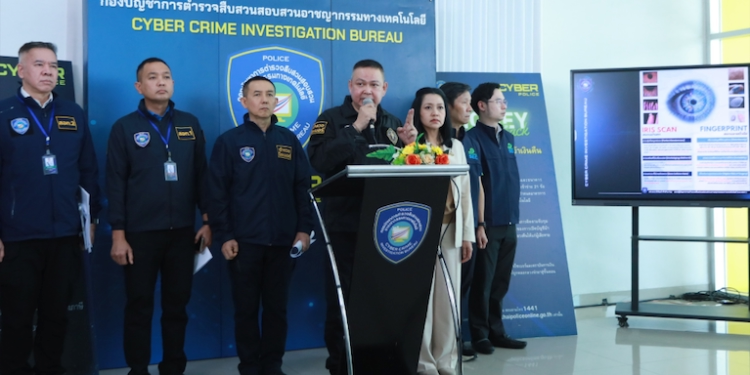Thai securities regulators raided an iris scanning station operated by World (formerly Worldcoin) on Friday, October 24, arresting suspects for running an unlicensed cryptocurrency exchange in violation of local digital asset laws.
The Securities and Exchange Commission and Cybercrime Investigation Bureau targeted a location in Thailand that was distributing WLD tokens in exchange for biometric verification—one of 102 such stations the Sam Altman-backed digital identity project operates across Thailand.
The raid marks the latest regulatory challenge for World, which has faced government scrutiny in Indonesia, Germany, Kenya, and Brazil over biometric data security concerns since its July 2023 launch.
License concerns spark legal alarms
The SEC and CCIB allege that the WLD exchange service operated without a proper license and thus violated local digital asset laws.
“Operating without proper authorization is a serious offense under Thailand’s digital asset regulations,” an SEC spokesperson said. This makes it clear that authorities are cracking down on unlicensed crypto operations.
The raid also raises legal questions for users who participate in WLD token verification on iris scanning sites around the world, as the process falls under the jurisdiction’s strict cryptocurrency laws.
World clarifies token eligibility
World has clarified that WLD tokens are only distributed in countries where local laws allow it. The company’s website states, “Eligibility for WLD tokens is limited based on geography, age, and other factors.” Furthermore, the company cannot guarantee the token’s availability on third-party platforms or centralized and decentralized platforms.
World’s developer, Tools of Humanity, had no comment on the raid in Thailand at the time of publication, which leaves legal uncertainty lingering over many iris scanning sites.
Global regulatory hurdles persist
Since its launch in July 2023, World has faced a number of regulatory challenges around the world. In May, Indonesia’s Digital Ministry investigated local operators for alleged registration violations and prompted the platform to temporarily suspend verification services.
Meanwhile, governments in Germany, Kenya, and Brazil have expressed concerns about the security of users’ biometric data.
“The security of users’ biometric information across all of our iris scanning sites is our top priority,” a World global spokesperson said, highlighting the company’s ongoing efforts to comply with international regulations, adding that the security of users’ data is being maintained as the network expands.
Implications for digital identity and crypto
The Thai raid highlights the complex legal environment for projects that combine biometric authentication with cryptocurrency. Analysts say global scrutiny of iris scanning sites could play a key role in shaping regulations for future digital identity systems.
“Compliance with diverse regulations will be key to World’s long-term success,” one industry expert noted.
He pointed to Sam Altman’s digital identity project and similar initiatives as examples for other countries on how to oversee the verification of iris-based tokens in the crypto-biometric sector.











